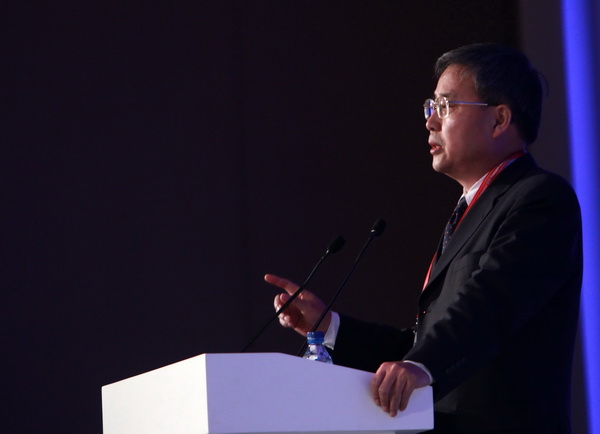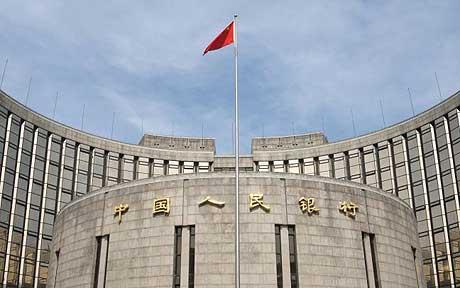

Highlights from the EO print edition, No. 636, Sep 9, 2013

Where Next for SASAC?
News, page 1
~ With the recent announcement that the head of China's State-owned Assets Supervision and Administration Commission (SASAC) has been removed from his position, the agency is now waiting to learn who will be its fourth director since it was founded 10 years ago.
~ Last week Jiang Jiemin (蔣潔敏), who had served as director for less than 6 months, was officially removed from the position after the Communist Party's anti-corruption body announced that he was being investigated for "serious violations of discipline."
~ On Sept 3, at a meeting of senior SASAC officials, it was announced that Zhang Yi (張毅), the deputy head of the authority and also the commission's party secretary, would temporarily assume the post of director.
~ This has left people involved in the state sector guessing who will be the next head of SASAC. The current heads of three central-administered SOEs are being talked about as potential candidates. That said, An Lin (安林), the chairman of a consultancy firm that works with many SOEs, told the EO that "Now the real issue is not who will take the position of SASAC director, but trying to understand clearly what the central authorities think should be the next step in terms of reforms pursued by SASAC."
~ An Li also said that the person chosen to replace Jiang Jiemin will be a sign of the central government's position in regard to reforming the state-owned sector. "If they want to continue the same approach of the past few years, then they'll appoint a 'hold things in place' official (護盤子). If they want to push ahead with reforms, then it would be better to appoint an administrator with market experience to the position."
~ Although the profits of SOEs continue to grow, over recent months warning signs have started to emerge. Last month the EO reported that China's steel industry is on the point of bankruptcy, with the latest figures revealing that accumulated debt at 86 large and medium-sized steel companies has already exceeded 3 trillion yuan and that the debt to assets ratio of these firms is close to 70 percent. The debt ratios of the key state-owned steel giants are even higher than the industry average.
~ These warning signs are not limited to state-owned firms operating in the steel industry. Large centrally-administered SOEs like China Ocean Shipping (Group) Company (中國遠洋), Aluminum Corporation of China (中國鋁業(yè)) and the China Metallurgical Group Corporation (中冶集團) are all operating at a loss.
~ Another sign that everything is not quite going to plan is that SASAC chose not to release the full results of a 2012 ranking of all the state-owned firms that it supervises. The document merely listed results for the enterprises who’d received the highest “Grade A” mark, unlike past practice, the nearly 70 enterprises that received the lower Grade B, C, D, and E rankings were absent.
~ Given that many are also saying that the further reform of the state-owned sector will be on the agenda at the third plenum of the 18th Party Congress in November, another challenge for the new director will be in knowing how to handle further reforms. Perhaps the new appointee will re-start efforts to establish independent boards to manage the central SOEs, a process that was trialed under the original director Li Rongrong (李榮融) but has since stalled.
~ China now appears to be at a crossroads, should the country reform the large centrally-administered SOEs that operate under SASAC? While many experts and public opinion appear to support reform, high-level central leaders who look at the question from the perspective of national security are less sure.
Original article: [Chinese]

Shell Companies Rip Off National Innovation Fund
Nation, page 9
~ In 1999, China's Ministry of Science and Technology (MOST) established an Innovation Fund (創(chuàng)新基金) to support scientifically innovative entrepreneurs through grants and low-interest loans. However, some unqualified businesses have tried to game the system in order to get free money.
~ To qualify, a company must demonstrate its innovativeness. It can do so though things like having accomplished researchers, cooperating with universities or respected research institutions, or making use of new technology to revive traditional industries and create jobs. The company also must present a detailed plan of how it will grow and innovate.
~ Zhang Ming'an (張明安)* is an entrepreneur who's received money from the fund in the past. But last time he applied, he was rejected by the Hefei municipal government.
~ Enter Li Yi (李毅)*, who runs a "consultantcy" that helps people qualify for funding though forgery and shell companies.
~ In Zhang Ming'an's case, Li helped to assemble bogus application materials, fabricate staff resumes, and make-up entrepreneurial success to add on to Zhang's resume.
~ "The key issue is to establish innovation points, though they don't actually exist," Li said. "We'll ask technical personnel in mechanical engineering or pharmaceutical fields to create 'innovation points' so as to pass the screening from the Innovation Fund Commission." These technical personnel will write up comprehensive technological plans and equipment needs so as to give the appearance of a legitimate operation.
~ Many agencies like Li's have sprung up since 1999. They make their money by taking 10 to 30 percent of the funds allocated to the shell companies.
~ There are several loopholes in the examination and approval process for the Innovation Fund that can be exploited. For example, application materials are often examined through meetings rather than actual field inspections. This leaves a lot of room for shell companies to make up statistics.
~ It's not always easy to get the funds though. Thirty percent of the money is supposed to be issued only after the programs have been examined by experts. Every year, 100 to 200 programs are suspended when these shell companies can't be reached or are found to be lacking things like an annual performance and supervision reports. Since 2006, funding for 1,295 programs has been stopped, amounting to a 1.3 billion yuan loss for the government.
* All the names included in this article are pseudonyms.
Original article: [Chinese]

Personnel Exchange to Boost Shandong Financial Reform Plan
Nation, page 11
~ Recently, 30 officials from the central government have taken up a temporary post in the Shandong Provincial government. At the same time, 34 officials from Shandong are taking a temporary post in financial departments of the central government. This is the first time such a large scale personnel exchange has happened between the central and a provincial government.
~ Financial reform undertaken by Shandong has drawn support from the central government, especially regarding reform of personnel appointments. Every prefecture-level city in the province has now been appointed a vice-mayor with significant knowledge and experience related to finance. For example, Wang Xiaofang (王曉方), former director of the State Scientific and Technological Commission (國家科學(xué)技術(shù)委員會), is the vice-mayor of Qingdao city and Dong Wenyuan (董文媛), a former director of CSRC, is now vice-mayor of Rizhao city.
~ "On one hand, Shandong will get better understanding and support from superiors when applying financial policy," said Chen Hua (陳華), a professor at Shandong University of Finance and Economics (山東財經(jīng)大學(xué)). "On the other hand, this personnel exchange could serve to better inform Shandong's officials of financial department procedures and expand their financial connection network."
~ Guo Shuqing (郭樹清), former chairman of CSRC, has pushed for reform in Shandong's financial sector since he become the province's governor earlier this year. This is significant because, unlike reform in many industries, financial reforms depend heavily on central government support and approval.
~ Shandong accounts for 9.6 percent of China's GDP, but its financial institutions make up just 6 percent of the country's financial market. Small and medium-sized enterprises in the province are constantly in dire need of financial support.
Original article: [Chinese]

Whither Foreign Investment Flows?
Market, page 19
~ In early September, data released by the Central Bank revealed that the amount of funds outstanding for foreign exchange in the People's Bank of China grew by 1.9 billion yuan in July to reach 25 trillion yuan. This reversed a 9 billion yuan fall in the figure in June. The amount of funds outstanding for foreign exchange has grown by 1.3 trillion yuan in the first seven months of this year, with growth of close to 300 billion yuan a month over the first four months of the year falling to just over 100 billion yuan in May before actually declining in June.
~ The growth in the funds outstanding for foreign exchange is often used as an indicator of capital flows, with positive growth an indicator that net foreign capital flows are entering the country and a decline an indication that foreign capital is leaving China.
~ Expectations that the United States will soon begin to pull back from quantitative easing (which has hit the currencies of emerging economies like Brazil, India and Indonesia) in combination with weaker than expected economic data have both contributed to the slowdown in net capital flows into the country over recent months. Now that China's macroeconomic data, including trade and PMI figures, are pointing towards stronger growth in the third quarter, it's unclear whether a significant flow of capital will once again begin to enter the country.
~ China's State Administration of Foreign Exchange (SAFE) says it expects capital flows to be basically balanced in the second half of the year.
Original article: [Chinese]